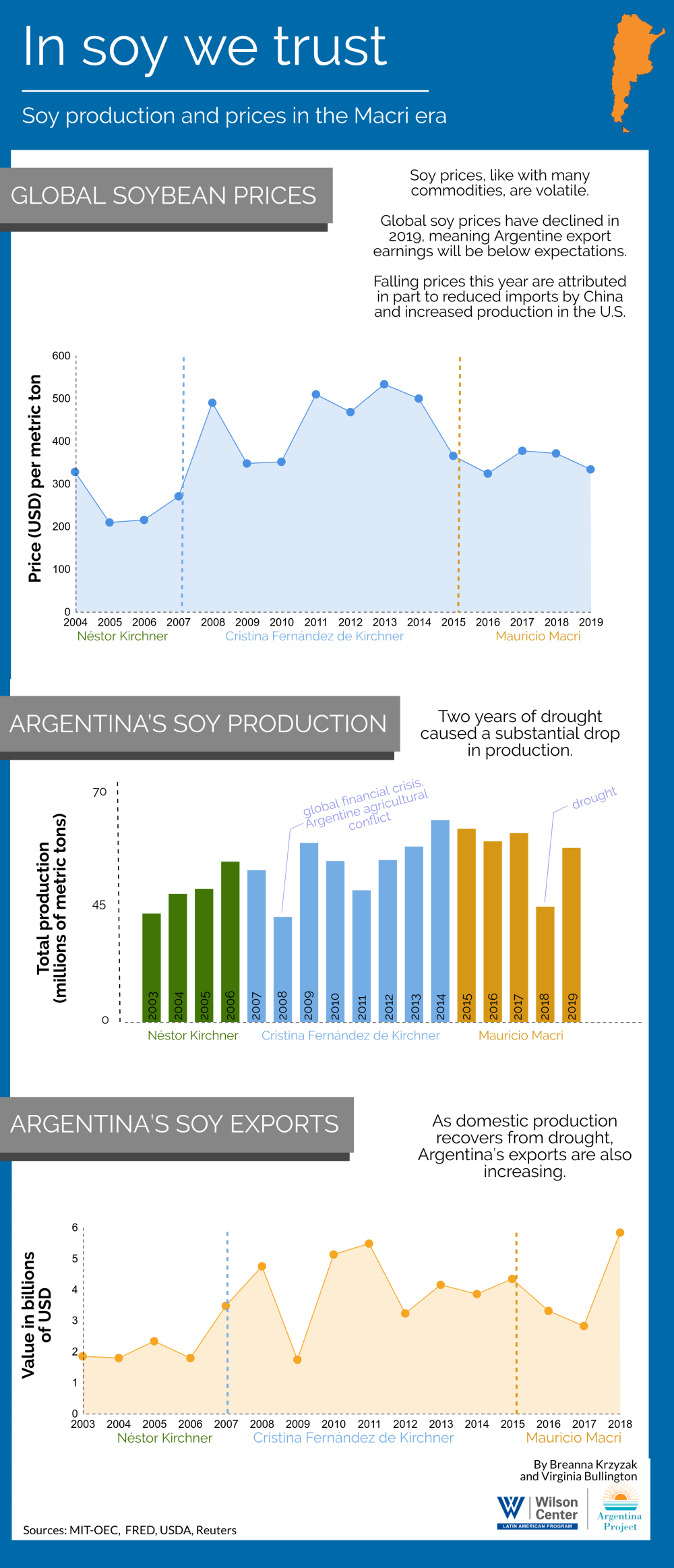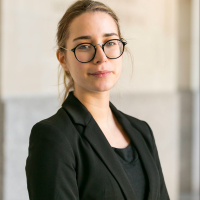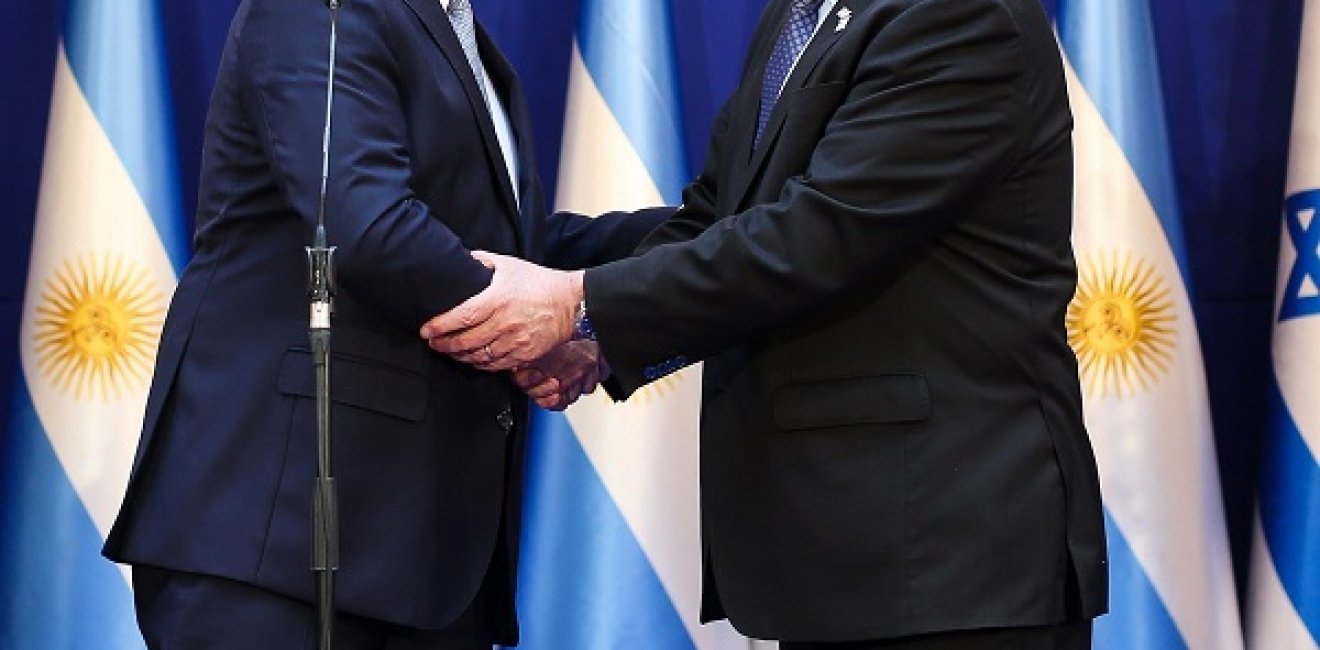
A blog of the Latin America Program
From Buenos Aires to Jerusalem
By Mayra Iglesias
President Alberto Fernández surprised observers by choosing Israel as his first international trip, attending the Fifth World Holocaust Forum in January, marking the 75th anniversary of the liberation of Auschwitz. The timing of Mr. Fernandez’s trip coincided with another important milestone for Argentina’s Jewish community, the fifth anniversary of the suspected murder of Alberto Nisman, the prosecutor who investigated Iran’s 1994 bombing of the AMIA Jewish community center in Buenos Aires.
Wrong Foot
Mr. Fernández’s election discomfited the country’s sizable Jewish community, bringing back to the Casa Rosada Cristina Fernández de Kirchner, his vice president, whose rapprochement with Iran had raised tensions with major Jewish organizations. For his part, Mr. Fernández did not reassure Jewish leaders when he told Israel’s ambassador to Argentina, Gaeli Ronen, that he planned to repeal a decree by President Mauricio Macri declaring Hezbollah a terrorist organization, and did not initially commit to attending the Holocaust memorial event in Jerusalem.
Mr. Fernández also risked alienating the Jewish community when he changed his position on Mr. Nisman’s death. In “Nisman: The Prosecutor, the President and the Spy” – British filmmaker Justin Webster’s six-part Netflix documentary that was released this January and captivated Argentines – Mr. Fernández, in a 2017 interview, says he doubted Mr. Nisman committed suicide. After the documentary’s release, however, the president told Clarín the forensic investigation that ruled his death a homicide had “lacked scientific rigor,” and added in a radio interview that “no serious evidence appeared indicating Nisman was killed.”
One Step Forward
Mr. Macri had improved the government’s ties to the country’s Jewish community, the largest in Latin America. In addition to declaring Hezbollah a terrorist organization in 2019, he organized the first-ever visit by an Israeli prime minister, in 2017. The next year, his vice president, Gabriela Michetti, visited Jerusalem.
Despite their warm relations with the last government, Jewish groups in Argentina have tried to avoid a partisan association with the Juntos por el Cambio coalition. This year, the country’s two most important Jewish organizations – the Delegación de Asociaciones Israelitas Argentinas and AMIA – skipped the annual march in memory of Mr. Nisman, with DAIA’s president, Jorge Knoblovits, emphasizing the need to “separate politics from his memory.”
Making Amends
Apparently at Ms. Fernández de Kirchner’s urging, Mr. Fernández has taken steps to build confidence among Argentine Jews. He decided to attend the Jerusalem Holocaust event and to maintain Hezbollah’s terrorist designation – a decision that earned public praise from Prime Minister Benjamin Netanyahu.
At the end of his trip, Mr. Fernández committed to holding accountable the perpetrators of the AMIA bombing and the 1992 Iranian attack on Israel’s embassy in Buenos Aires. “Nuestro compromiso por saber la verdad sobre lo que pasó con la AMIA es absoluto,” he said. “Fue nuestro compromiso y es nuestro compromiso. Necesitamos saber que fue lo que pasó. Por la memoria de todos los que murieron allí y todos los que murieron en la embajada de Israel. Ese compromiso nuestro es inalterable.”

Author


Latin America Program
The Wilson Center’s prestigious Latin America Program provides non-partisan expertise to a broad community of decision makers in the United States and Latin America on critical policy issues facing the Hemisphere. The Program provides insightful and actionable research for policymakers, private sector leaders, journalists, and public intellectuals in the United States and Latin America. To bridge the gap between scholarship and policy action, it fosters new inquiry, sponsors high-level public and private meetings among multiple stakeholders, and explores policy options to improve outcomes for citizens throughout the Americas. Drawing on the Wilson Center’s strength as the nation’s key non-partisan policy forum, the Program serves as a trusted source of analysis and a vital point of contact between the worlds of scholarship and action. Read more


Argentina Project
The Argentina Project is the premier institution for policy-relevant research on politics and economics in Argentina. Read more

Explore More in Weekly Asado
Browse Weekly Asado
Dengue Haunts South America’s Summers

Lessons from Costa Rica’s Economic Transformation

Women and Latin America’s Digital Revolution

